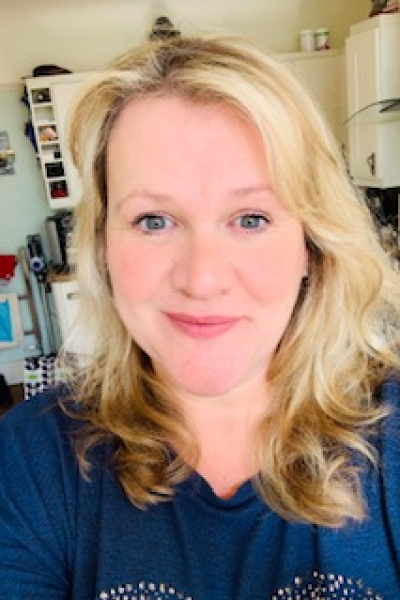I started my undergraduate degree in Midwifery at Bournemouth University in 2001. During my degree, I realised that I had a passion for midwifery education, so after more than a decade of frontline working in the National Health Service (NHS) the next step for me was to apply for a PhD position working on an educational midwifery project in the form of a student led clinic (SLC). I applied and was offered the position, which I began in 2013.
My PhD journey to date has been exciting but challenging. I really enjoy working on my doctorate when I get time, but it has been a journey with highs and lows. During this time, I have also moved to a career in higher education, as a midwifery educator, including having to navigate a life-changing event. Moving between roles as the main carer of my two children and studying has been interesting to say the least. However, with support and understanding of my husband and my research supervisors I have found the strength and motivation to continue.
When I reflect on my time thus far as a doctoral student, it has certainly been busy. I manage to get involved as much as I can with postgraduate research (PGR) learning opportunities that are available though the University’s Doctoral College. I believe it is a privilege to have access to a range of resources that allow you to engage and develop your skills for free. However, balancing my time, particularly during postgraduate study and work, can be problematic. Judging which information and knowledge I need, to move forward, can be difficult, and this is something I have not always managed to get right, but is part of the reflective learning I have acknowledged and accepted.
As a postgraduate student, I have developed a wide range of transferable skills, which I have not always acknowledged, but as I near the end of my doctoral studies, I can see that I am still developing and learning every step of the way. I have found I am good at long-term vision and ideas, but also I acknowledge my weaknesses, such as time management and ‘detail’, essential key skills that are needed to continue on this journey. I also find it exciting that I am contributing to new knowledge, in the hope of providing positive and essential contributions in the profession I dearly love.
As I near to the end (the light at the end of the tunnel is starting to flicker) I have learnt not to compare myself with others. Each researcher and project is unique and will face different challenges at different times; you need to run your own race! However it is a competitive field where achievements are rightly highlighted and celebrated, but how we get there will differ for all. To sum this up a PhD is definitely a marathon not a sprint!
